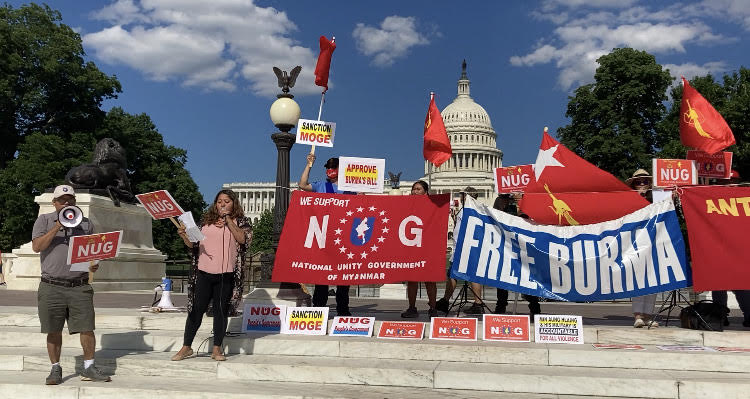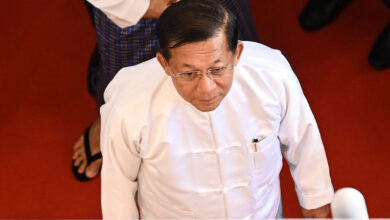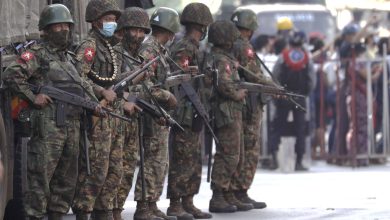
Last week our phones began buzzing with congratulatory messages from friends letting us know that the BURMA Act of 2021 had finally passed. News agencies even approached us for interviews about the bill’s triumph.
The only problem was that it had not passed.
It had not even been voted on. In fact, it was still in the early stages, having only passed through the House Foreign Affairs Committee. It still needs to pass through a floor vote in the House and a committee and floor vote in the Senate.
So, what happened?
Senator Mitch McConnell had added an amendment about Myanmar into the National Defense Authorization Act (NDAA)—signed into law by President Joe Biden on Monday—and done extensive press and community outreach about it. There was so much hype that people began to assume that the BURMA Act, which we have been promoting for months, must have passed. While McConnell’s two-page NDAA amendment offers some important opportunities to provide guidance on US-Myanmar policy, it is no substitute for the 59-page BURMA Act.
The majority of the NDAA’s 910 pages have little to do with Myanmar. Its main purpose is to authorise spending on the US military. This year, five amendments were added that are relevant to Myanmar, and the two most notable ones are:
-
Congresswoman Maxine Waters added Section 6104 in order to prevent the International Financial Institutions (IFIs), World Bank, IMF, Asia Development Bank, from lending to the junta.
-
The much publicised “McConnell Amendment,” is Section 6510. It requires that a handful of federal agencies give a briefing to Congress about their progress on promoting democracy in Myanmar.
While Waters’ amendment has specific policy implications—though the IFIs are not currently lending to Myanmar, this could be a negotiating point in the future—the strength of McConnell’s amendment is that it will give the Senators and Congressmen the ability to ask tough questions of the administration and suggest places for improvement. The agencies will have to brief Congress on what they have done to address humanitarian concerns, legitimize the National Unity Government, impose costs on the junta, and secure the release of political prisoners.
A lot of confusion and misinformation have erupted between Senator McConnell’s NDAA Amendments and Burma Act 2021. We hope this will serve as a guide to the current progress in Congress regarding support for Burma and the work we MUST continue to ensure the revolution prevails! pic.twitter.com/QrdC6Xp0LZ
— U.S. Advocacy Coalition for Myanmar (@usacm3) December 24, 2021
The BURMA Act, on the other hand, authorises specific actions and provides comprehensive guidelines for the federal agencies to follow. These include:
-
The authorisation of US$220m in humanitarian aid. (At present, without the bill having passed, $136m is set to be allocated.)
-
$50m in democracy assistance every year for the next five years.
-
An expansion of the sanctions on individuals and military associated entities.
-
A report on the costs and benefits of sanctioning Myanma Oil and Gas Enterprise (MOGE), the regime’s largest source of foreign exchange.
-
A decision about whether the US will determine the brutality against the Rohingya to be a genocide.
-
The appointment of a sanctions and policy coordinator whose role is to promote regional cooperation in response to the junta.
The BURMA Act authorises spending on humanitarian aid and democracy promotion and greenlights particular actions to target the junta’s revenue sources. The administration has thus far repeated the recommendations of business over human rights groups when it comes to MOGE sanction. The BURMA Act 2021 would help provide a guiding push toward cutting the regime off from this source. The law is well targeted as State Department officials often cite the lack of research as the key reason that they can not sanction MOGE. If the Rohingya crisis were determined to be a genocide, it would also create greater pressure on the administration to sanction the Tatmadaw.
All in all, the BURMA Act carries a significantly heavier punch than McConnell’s briefing requirements and must therefore, remain at the center of US advocacy efforts.
People living in the US should continue to reach out to their Senators, especially those on the Foreign Relations committee, to ensure that the BURMA Act of 2021 becomes law.
Aye Thandar works with the US Advocacy Coalition for Myanmar (USACM), and Michael Haack works with both USACM and Campaign for a New Myanmar.
USACM was formed after the February military coup and its members are working to restore democracy in Myanmar. They host free Zoom training on how to contact US Senators and House Reps every Sunday at 6pm Eastern Time (US) and Tuesday at 9pm Eastern Time (US).



